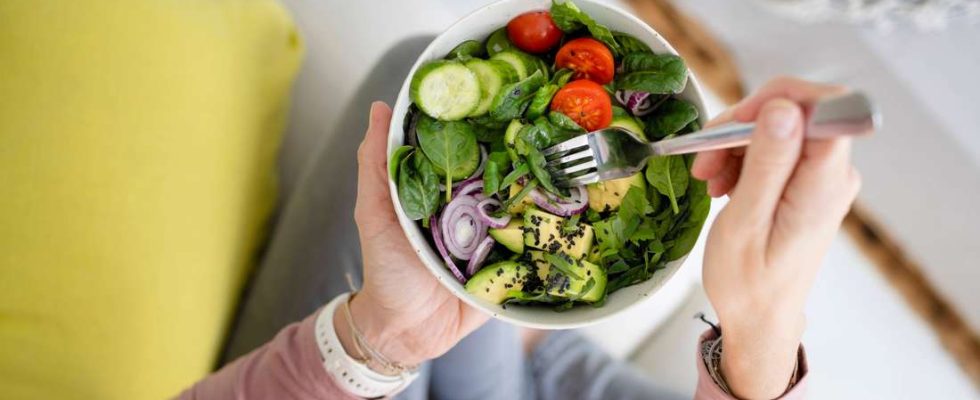Press
Plant substances are not only found in vegetables. Which foods provide you with valuable flavonoids. Even the risk of stroke and heart attack is said to decrease.
grains, fruits and Vegetables are considered the ultimate healthy staple food. They are unprocessed, contained important fiber and nutrients vital for the body. This includes macronutrients such as carbohydrates. But the secondary plant substances, which are contained in far fewer quantities, also have health-promoting effects. They come in plant foods such as vegetables, legumes or nuts and give them their color. They also serve as defense substances for plants against predators and act as growth regulators, such as German Society for Nutrition (DGE) further informed.
The Federal Center for Nutrition lists various secondary plant substances and their effects:
- Flavonoids: inhibit inflammation, regulate blood pressure, prevent cancer and cardiovascular diseases, and act against bacteria and viruses
- Carotenoids: have an antioxidant effect, inhibit inflammation, prevent cancer, metabolic syndrome and cardiovascular diseases
- Phytosterols: lower cholesterol levels and prevent cardiovascular diseases
- Glucosinolates: have an antioxidant effect and prevent cancer
- Saponins: prevent cancer and act against bacteria
- Phytoestrogens: regulate blood pressure and prevent cardiovascular diseases, menopausal symptoms and cancer
- Sulphides: act against bacteria and viruses, regulate blood pressure, lower cholesterol levels and prevent cancer
Study shows blood pressure-lowering effect of flavonoids
Anyone who regularly eats whole grain products, nuts, vegetables, fruit and legumes supplies the body with secondary plant substances. It’s best to look for organic quality because these products contain fewer or no pesticides or other toxins.
A Northern Irish-German study has confirmed this Federal Center for Nutrition According to studies, foods rich in flavonoids have been shown to lower blood pressure and thereby prevent cardiovascular diseases such as Prevent arteriosclerosis, stroke and heart attack can. This effect can be attributed, among other things, to a more diverse intestinal flora, according to a study conclusion. The research team led by Amy Jennings from the Institute for Global Food Security at Queen’s University in Belfast evaluated data from 900 adults for the study. Stool samples were taken and diets and blood pressure values were also recorded. Those who frequently ate flavonoid-rich foods had lower blood pressure levels than those who rarely consumed flavonoids.
Those who ate around 1.5 portions of berries a day (around 130 grams) were able to achieve an average reduction in systolic blood pressure of 4.1 mm Hg, according to the researchers. Up to 15 percent of the connection between flavonoid-rich diets and blood pressure was due to a larger Diversity of the intestinal microbiome to explain, quotes that Federal Center for Nutrition from the study. However, this is an observational study that cannot prove any causal relationships. To confirm the results, further analyzes must follow.
Which foods contain flavonoids?
As plant pigments, flavonoids are responsible for the red, blue, light yellow and violet colors of many vegetables and fruits, as the DGE informed. The secondary dyes are contained, among other things, in:
- Berry
- apples
- Onions
- soy
- tea
- red wine
- nuts
- Chocolate
With regard to alcohol in red wine, it should be noted that it has a negative impact on our health. Many doctors therefore recommend consuming very little or, ideally, no alcoholic beverages. Because excessive consumption has fatal consequences: liver cirrhosis, alcohol addiction, nerve damage in the brain and even cancer. You can read the recommended maximum amounts of alcohol according to the German Central Office for Addiction Questions here.
This article only contains general information on the respective health topic and is therefore not intended for self-diagnosis, treatment or medication. It in no way replaces a visit to the doctor. Our editorial team is not allowed to answer individual questions about medical conditions.

